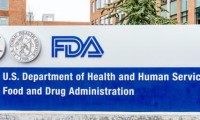-
FDA approves CellTrans’ Lantidra as first cellular therapy to treat type 1 diabetes
- Source: drugdu
- 125
- July 3, 2023
-
Lantidra wins FDA approval as first-ever type 1 diabetes cell therapy
- Source: drugdu
- 203
- July 3, 2023
-
Sanofi outlines five-pronged approach to reel in €10B in vaccine sales by 2030
- Source: drugdu
- 106
- July 3, 2023
-
Missed trial protocols, fabricated emails and failed endpoint mar BioXCel’s Alzheimer’s agitation readout
- Source: drugdu
- 103
- July 2, 2023
-
Gates Foundation and Wellcome to fund late-stage trial of tuberculosis vaccine candidate
- Source: drugdu
- 119
- July 2, 2023
-
Has COVID-19 changed the future of pharmaceutical regulation?
- Source: drugdu
- 144
- July 2, 2023
-
FDA repeats restrictions on NuVasive limb-lengthening device after clearing pediatric use
- Source: drugdu
- 118
- July 1, 2023
-
Scientists use designer tubulins to crack the tubulin code
- Source: drugdu
- 113
- July 1, 2023
-
Loneliness linked with elevated risk of cardiovascular disease in patients with diabetes
- Source: drugdu
- 151
- July 1, 2023
-
Pandemic ‘fear of missing out’ had mental health consequences for older adults, study shows
- Source: drugdu
- 115
- July 1, 2023
your submission has already been received.
OK
Subscribe
Please enter a valid Email address!
Submit
The most relevant industry news & insight will be sent to you every two weeks.













